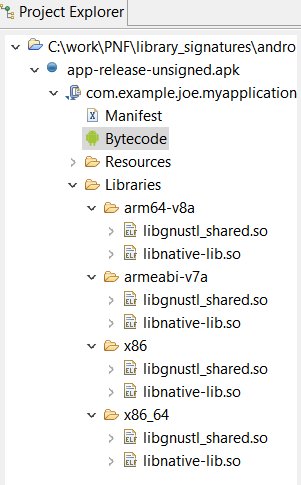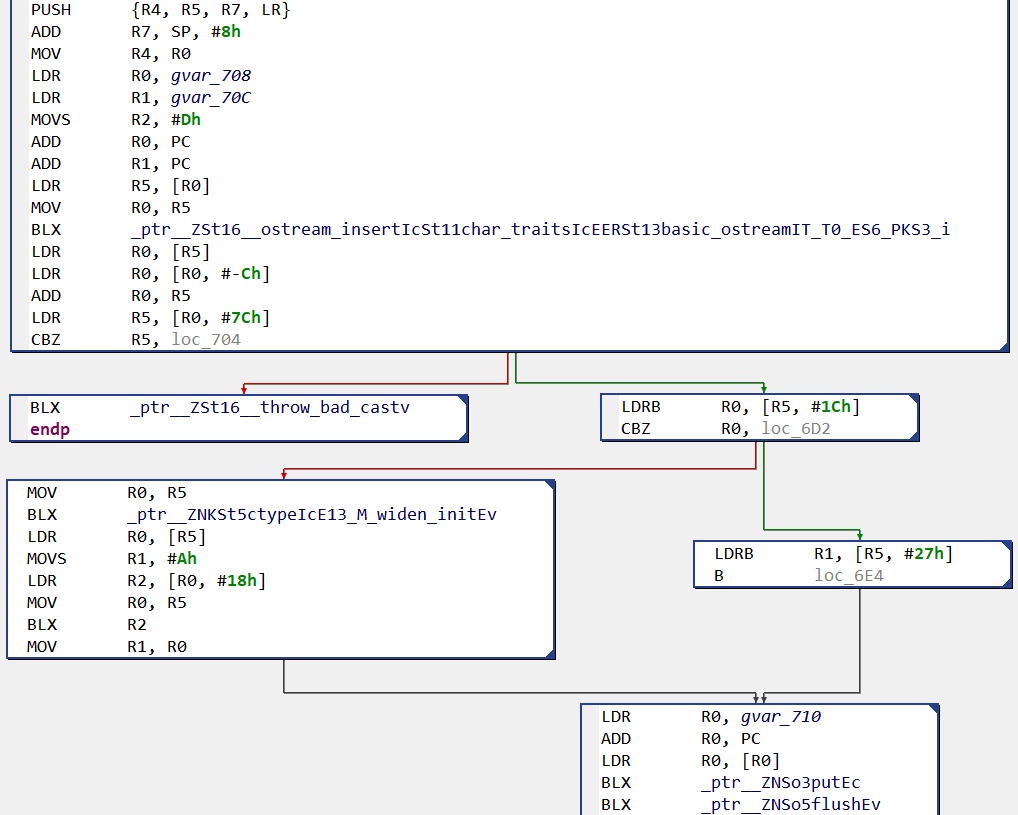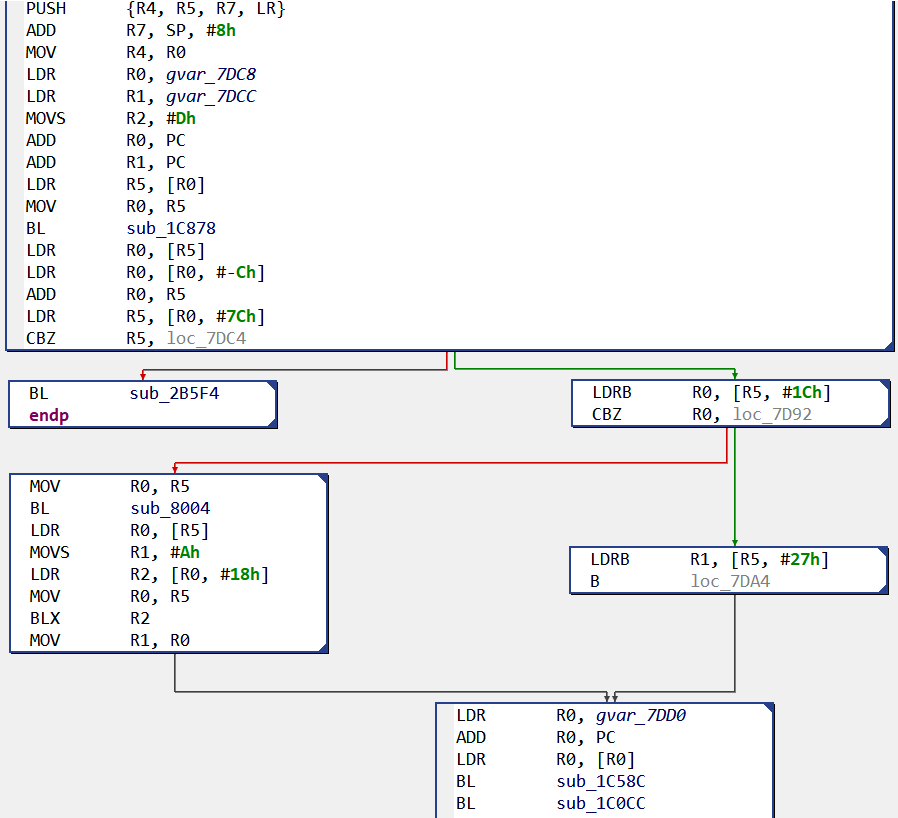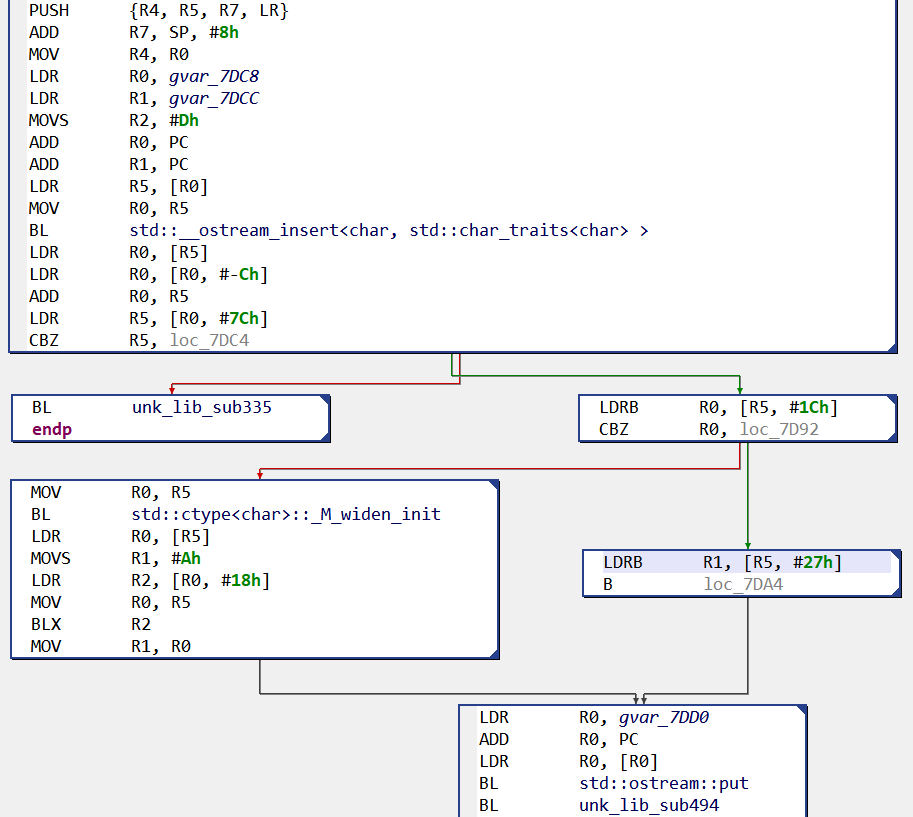In this blog post, we present a new batch of native signatures released with JEB3 to identify Android Native Development Kit (NDK) libraries.
First, let’s briefly give some context. The Android NDK is a set of tools allowing developers to embed compiled C/C++ code into their Android applications. Thus, developers can integrate existing native code libraries, develop performance-sensitive code in C/C++ or obfuscate algorithms with native code protectors.
In practice, native code within Android applications comes in the form of ELF shared libraries (“.so”); the native methods can then be called from Java using Java Native Interface (JNI), which we described in a previous blog post.
NDK Pre-Built Libraries
Android NDK provides some pre-built libraries that can be linked against. For example, there are several C++ Standard Template Library (STL) 1 , or the Zlib decompression library.
As an example, let’s compile a “hello world” Android NDK C++ library with NDK r17. By default, the C++ implementation will be gnustl — the default choice before NDK r18.
Here is the C++ code:

When compiled with Android Studio’s default settings, libraries are linked dynamically, and libgnustl_shared.so is directly included in the application — because it is not a system library –, for each supported Application Binary Interface (ABI).

If we open the ARM library we can pretty easily understand the — already convoluted — logic of our “hello world” routine, thanks to the names of gnustl external API calls:

Now, Android NDK also provides static versions for most of the pre-built libraries. A developer — especially a malware developer wishing to hinder analysis — might prefer to use those.
When compiled in static mode, gnustl library is now ‘included’ in our native library, and here is our “hello world” routine:

In this case, the analysis will be slowed down by the numerous routine calls with no specific names; each of this subroutine will need to be looked at to understand the whole purpose.
This brings us to a common reverse-engineering problem: is there a way to automatically identify and rename static library code, such that the analyst can focus on the application code?
JEB3 NDK Signatures
That’s when JEB native signatures come to the rescue! Indeed JEB3 now provides signatures for the following Android NDK static libraries:
- gnustl
- libc++
- STLport
- libc
- libmath
- zlib
We provide signatures for ARM/ARM64 ABIs (including all variants like arm-v7a, arm-v7a-hard, thumb or ARM mode, etc) of these libraries, from NDK r10 to NDK r18.
These signatures are built in a similar fashion to our x86/x64 Visual Studio native signatures, and are intended to be “false-positive free”, which means a match should be blindly trustable. Note that JEB users can create their own signatures directly from the UI.
So, within JEB, if we open our statically-linked library with the signatures loaded, gnustl library routines are identified and renamed:

Note: the attentive reader might have noticed some “unk_lib_subX” routines in the previous image. Those names correspond to cases where several library routines match the routine. The user can then see the conflicting names in the target routine and use the most suitable one.
Due to the continuous evolution of compilers and libraries, it is not an easy task to provide up-to-date and useful signatures, but we hope this first NDK release will help our users. Nevertheless, more libraries should certainly be signed in the future, and we encourage users to comment on that (email, Twitter, Slack).
- NDK C++ support is a turbulent story, to say the least. Historically, different implementations of C++ have been provided with the NDK (gnustl, STLport, libc++,…), each of them coming with a different set of features (exceptions handling, RTTI…). Since the very recent r18 version (released in september 2018) Android developers must now use only libc++. ↩
One thought on “Android NDK Libraries Signatures”